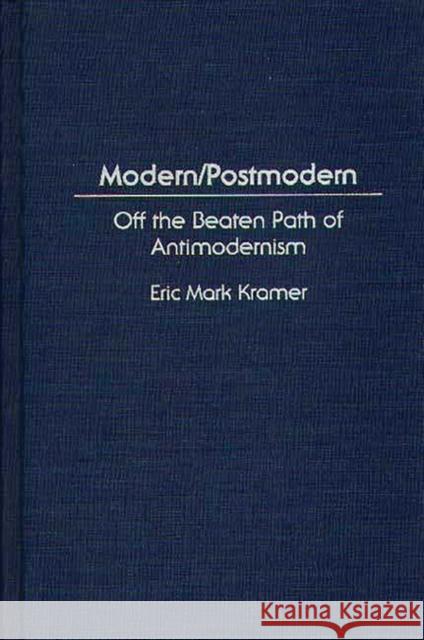Modern/Postmodern: Off the Beaten Path of Antimodernism » książka
Modern/Postmodern: Off the Beaten Path of Antimodernism
ISBN-13: 9780275957582 / Angielski / Twarda / 1997 / 256 str.
In this book Eric Kramer introduces his theory of dimensional accrual/dissociation to explain the difference between modernity and postmodernity. He also argues that social scientific operational definitions are useful but very often arbitrary. Thus, realities based on them are available for creative (alternative) validities. Kramer then concentrates on the concepts of modernity and postmodernity to analyze how they have been defined and structured and, in the end, he offers clear definitions of these concepts and a better understanding of the work of those who have shaped these ideas. Kramer applies this position to the concepts of modernity and postmodernity, providing a painstaking review of the origins, key thinkers, and current status of these ideas.
By reviewing the development of these ideas and providing clear definitions of these concepts, Kramer helps scholars and researchers in the social sciences and humanities better understand applications and limitations of these key approaches in late twentieth-century scholarship.











